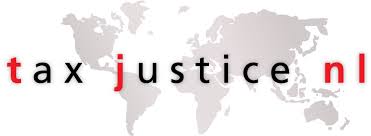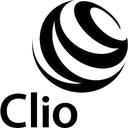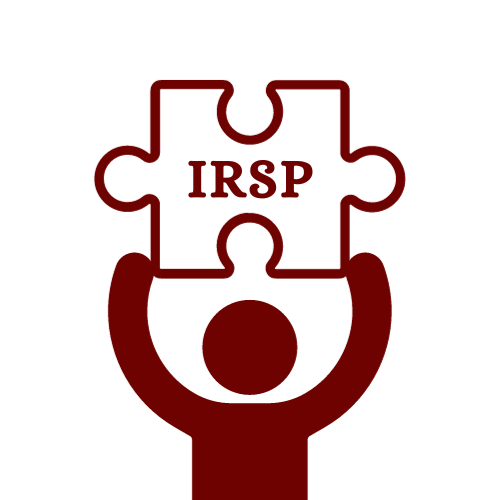2011-2012
Amending the Conduit Status of the Netherlands:
Possible Policy Alternatives
|
Contact the successor of the Evert Vermeer Stichting; the Foundation Max van der Stoel
Contact the Tax Justice Network
Researchers
Kerstin Sandow Heine Lageveen Jasper Kornmann Leonie Jegen Supervisor Dr. R.L. Holzhacker Unfortunately, we cannot (yet) publish a downloadable version of this research. For an example of a full research, please click here. |
PARTNER ORGANIZATIONS
This research was commissioned by the Evert Vermeer Foundation in coordination with Tax Justice Netherlands. The Evert Vermeer Stichting (EVS), or Evert Vermeer Foundation, is an independent foundation affiliated with the Dutch labor party. The EVS is committed to international solidarity and believes that the voice of people in developing countries should be represented in Dutch and European politics. This is highly needed because politicians often make decisions without taking the interests of developing countries into account. The EVS tries to influence the policies here in order to improve the lives of people in developing countries. Tax Justice NL is a network of Dutch civil society organizations. The members of Tax Justice NL are Oxfam Novib, Stichting Oikos, SOMO, Cordaid, Transnational Institute, Both Ends, Evert Vermeer Stichting and ActionAid NL. The purpose of Tax Justice NL is to promote a just and fair tax system that is supportive to international development. The network hopes to influence Dutch politics, so that Dutch tax policies will become more coherent with development cooperation. SUMMARY This research investigates to what extent the Dutch tax policy can be amended in order to minimize the conduit status of the Netherlands, which currently can be used by multinational corporations (MNCs) to avoid taxes elsewhere. The TJN has defined the Netherlands as a conduit country enabling MNCs to avoid taxes. Dutch tax legislation has been identified as harmful by fostering an international tax avoidance system, leading to the loss of tax revenue for other countries. By maintaining this tax system the Netherlands continues to enable the economic damaging of other countries, especially developing countries. The findings of this research are to support the lobbying and awareness creating work of the EVS and TJN Netherlands, by providing them with comprehensive options for policy amendments for the Dutch government. The Dutch conduit status In this research three key elements are highlighted as the main contributors to the conduit system: double taxation treaties (DTTs), participation exemptions, and tax rulings. For the conclusion of DTTs Netherlands uses the multilaterally agreed OECD model convention. The Dutch treaties establish a tax regime in which double taxation treaties result in low or no withholding taxes on dividends, interests and royalties. The extensive treaty network makes the Netherlands an attractive country for the establishment of conduit companies. The participation exemption enables MNCs to transfer dividends from a subsidiary to a parent company without the risk of being taxed twice. The dividend then becomes part of the profit of the parent, and where normally the profit of a parent is taxable with the participation exemption it is not. This creates the possibility to transfer money from a country with a low percentage of corporate tax to the Netherlands where it is not subjected to a corporate tax rate of 25.5% anymore. Tax rulings contribute to the establishment of the Dutch conduit system because they provide certainty about the fiscal consequences of proposed conduit structures; leading maximum security and minimum risk in tax planning for international companies. It has to be underlined that these structures do not automatically constitute an invitation to use the Dutch system for tax avoidance schemes, but simply provide the option to do so. Double taxation is a serious obstacle towards an efficient global market; therefore instruments to solve this issue are not always intentionally instruments of tax avoidance but simply of optimization. Nevertheless, tax jurisdictions such as the Netherlands have been identified as allowing techniques of avoiding taxes even though they are most often legal. Subsidiaries of a company are domiciled in the Netherlands in form of Special Financial Institutions (SFIs) which are used as intermediaries for the flow of money from other company subsidiaries or affiliates to the parent or the other way around. The Dutch intermediary then plays a vital role in intra-group trade and financing and can be used for tax avoidance techniques such as thin capitalization and transfer pricing, but most importantly does it enable the conduit of money from high tax jurisdictions to off-shore financial centers. Mixed IMPACT of the Tax Regime on the Netherlands The actual effect of the tax regime leading to the conduit status of the Netherlands can hardly be isolated from other factors. Nevertheless, trends have been identified in how far the Dutch tax regime has an impact on the Dutch economy in terms of employment, tax revenue, real economic activity and the reputation of the Netherlands. There is no single main attribute of the Netherlands that attracts MNCs and to what extent the favorable Dutch tax system contributes to the attractiveness of the Netherlands. However, in sum tax policy in combination with other factors has made the Netherlands a hotspot for international companies. In regard to employment, MNCs settled in the Netherlands with headquarters have mostly generated high-skilled jobs in the service and management branch. Part of this branch is the trust sector which creates around 2200 jobs. This constitutes only a fraction of the overall size of the service sector in the Netherlands. The Dutch tax regime also has an impact on the creation of real economic activity in the Netherlands, even though the direct effect on revenue cannot be effectively determined. Firstly, the large amount of MNCs which make use of the Dutch tax system, especially through mail box companies, nourishes the extensive Dutch trust sector which has an annual turnover of € 300 million. However, considering the fact that the sector processes 75% of the US$ 3700 billion in FDI that left the Netherlands in 2009 the trust sector turnover does not seem impressive. Secondly, many companies establish themselves in the Netherlands on a low substance basis. While this is a logical step for a company to grow from low substance subsidiary in a new market to a high substance enterprise, this development does not constitute the common case for SFI’s in the Netherlands. In addition, the Netherlands enables MNCs to reduce their taxes through its tax system and provides them with opportunities to exempt parts of their profits. This results in lower overall tax revenue for the Dutch as well as international governments. One motivation for such a policy is to create an attractive international business climate which benefits the Netherlands as an international business hub. However, since the Dutch tax system was shown to enable the conduit of money flows and tax avoidance schemes the government neglects the fair share principle. It can be argued that a significant share of those companies are only located in the Netherlands because of the beneficial tax regime. Those companies are mostly represented by Dutch trust offices. By using the Dutch tax system, they are able to direct € 90 billion through Netherlands, while they only had to pay € 890 million in taxes. Lastly, the current tax regime of the Netherlands has implications for its reputation. The international media have depicted the Netherlands as harmful and as a tax haven especially during the last years. Yet, it remains uncertain in how far this will affect the business conduct of MNCs domiciled in the Netherlands, despite the fact that tax is being incorporated more and more into the developing concept of corporate social responsibility (CSR) next to the prevailing ESG factors. Four policy amendments to the current Dutch Tax policy This research proposes three possible policy amendments the Dutch government could implement in order to minimize the harmfulness of its current conduit status. 1. Country-by-Country-Reporting (CbC) CbC reporting could, as global business becomes more accountable, lead to more global financial stability. For the Netherlands lobbying for CbC reporting is beneficial because it can foster the business attractiveness of the country. Due to the increasing relevance of CSR for the reputation of MNCs, they do not want to be associated with a harmful tax regime. Thus an active Dutch participation in the international discourse for CbC reporting will, next to the benefits the new financial accounting standard offers in general, also benefit the Netherlands, as it can contribute to change their international image as a gloomy tax jurisdiction enabling tax avoidance into an image of open and transparent business environment. 2. Stricter Substance Requirements It is possible that the trust industry will endure a decline in the short run due to stricter substance requirements for SFIs. However, in the long run, the Dutch reputation as a reliable country for financial activities will be strengthened. In addition, a reinforcement of the substance requirements will not repel those SFIs that contribute to the real economy of the Netherlands since it is very likely that they already meet such requirements. Furthermore, it is viable that most SFIs will return to the Netherlands again since the vast amount of double tax treaties (DTTs) is still present, as are the relatively low corporate and withholding taxes. 3. Automatic Tax Information Exchange Agreements The Netherlands should lobby more actively for automatic tax information exchange. The current Tax Information Exchange Agreements (TIEAs) are based on an information exchange on request. This decreases the effectiveness of international information sharing. While the Dutch government has argued on multiple occasions that it is in favor of an automatic exchange, it has not yet lobbied actively for this in an international environment. Worldwide transparency on tax issues would be enhanced if countries would share their tax information automatically. 4. A dutch approach to corporate social responsibility (CSR) It is important to involve all stakeholders in the dialogue on CSR. Increasingly code of conducts of MNCs have been turned into actual concepts employed by national government as actual policy concepts. Thus MNCs can and should have a vital role in forming this concept, as they are directly affected by it. While the Dutch government has already institutionalized the dialogue in this regard and supports the OECD CSR criteria, including taxation, creating a platform for dialogue on this issue can only be advisory to the Dutch government. Firstly, because a concept created by all stakeholders promises most effectiveness and coherence. Secondly, making CSR a nationwide issue can help to establish a more uniform or general concept, which might just be the beginning of new norm tradition. Lastly, the Netherlands need as concept that more specifically addresses the issue of tax avoidance through its tax system. |




